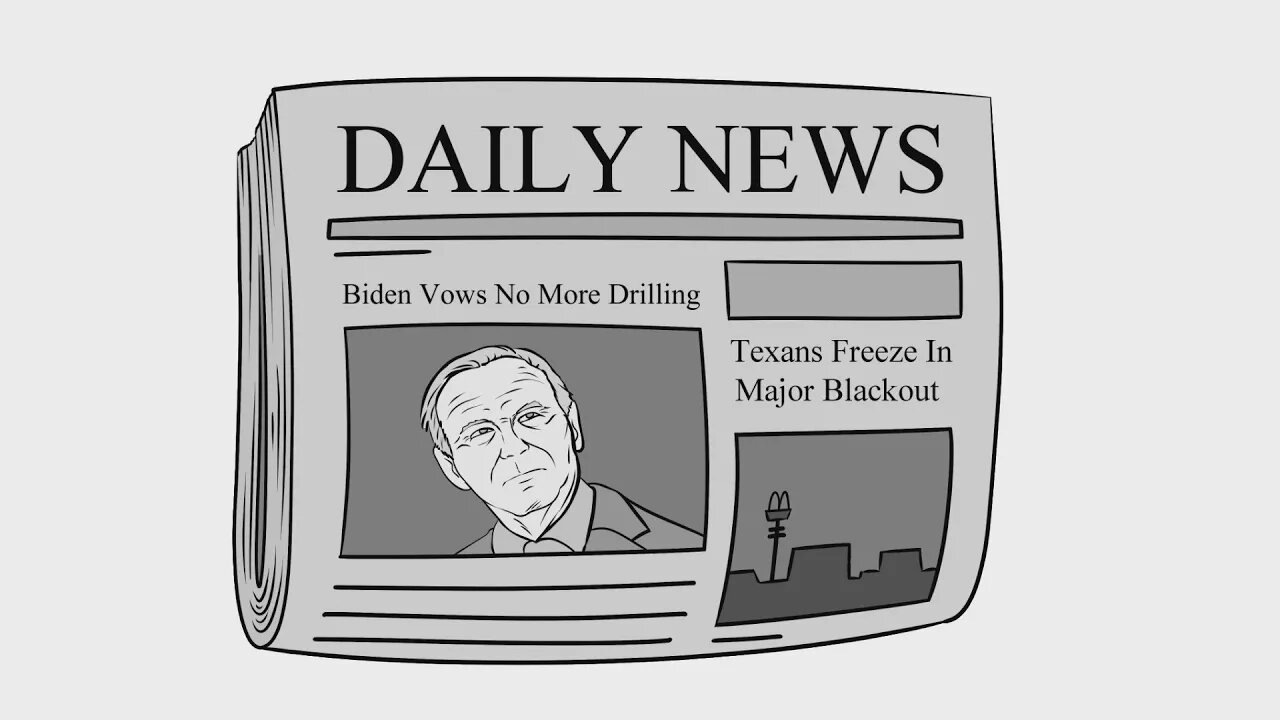Premium Only Content

The True Fossil Fuel Crisis
If we start with an appreciation of the role energy abundance has played in improving the material existence of humankind, we can consider why fossil fuels played this historic role in our energy consumption and what we should keep in mind when looking for alternatives.
Human energy use did not begin with industrialization.
Fire is an obvious source of energy, used from the earliest days of man. Our own bodies, burning calories as we breathe, are an example of energy consumption. Wind and animals were used for transportation. What made fossil fuels revolutionary is their cost-effectiveness.
In his book *Fossil Future*, Alex Epstein simplified the issue of cost-effectiveness into four points:
1. Affordability: How much does energy use cost relative to how much money people have?
2. Reliability: Can it be produced “on demand,” in as large a quantity as needed?
3. Versatility: Can it power many kinds of machines?
Scalability: How many people can it power, and in how many places?
4. By these measures, fossil fuels continue to stand alone.
Let’s take gasoline as an example.
While prices can fluctuate, such as when gas production is impacted by international crises, gasoline remains affordable enough that both the elite and the working class use it every day.
Gasoline is plentiful. In fact, thanks to new surveys made possible by technological advancements, there are more known crude oil reserves in America today than there were in 1977. Gasoline is also reliable in that it will dependably power machinery as long as the engine is functional.
It is versatile that in it can power everything from airplanes to lawn equipment.
And gasoline is scalable in that once sealed in a drum or vessel, it can be shipped anywhere in the world and can sit in storage indefinitely without losing its potency.
Natural gas and coal also have these qualities, which explains why countries like China are increasing their investment in these very fuels even while Western leaders make expensive commitments to move away from them.
In fact, it is the reluctance of North America, Europe, and other economies to do the same that is creating the real fossil fuel crisis: a future of declining reliable energy sources. While global turmoil between Russia and the West has forced European countries to consider the realities of energy scarcity, less developed parts of the world have not yet enjoyed the societal benefits of energy abundance, even in peace. In parts of Africa, for example, energy rationing limits access to life-saving medical equipment. In other areas, unreliable energy sources severely limit industrial capacity.
While America has the natural resources to significantly increase fossil fuel production, energy companies are unwilling to invest in expensive new refineries that will not be profitable for many years. By pushing energy policy away from promoting production and toward other aims—such as alleged environmentalism—North America and Europe are making reliable energy resources more scarce at the expense of their citizens and the rest of the world.
Ironically, those that pay the most lip service to “environmental justice” are promoting policies that directly result in the suffering of the most economically vulnerable in the world.
But do green activists’ preferred alternatives have fossil fuels’ useful qualities? Can humanity rely on them? That is the topic of our next video.
______________________________________
Want to learn more?
For more animated content, check out Economics for Beginners at https://BeginEconomics.org.
-
 1:09:45
1:09:45
Dear America
11 hours agoTrump Puts China On An Island, Brings Xi Jinping To His Knees + Tampon Tim Gets BOOED By Veterans!
56.3K10 -
 LIVE
LIVE
Wendy Bell Radio
5 hours agoTrump Wins Again
9,821 watching -
 LIVE
LIVE
Canada Strong and Free Network
2 hours agoCanada Strong and Free Network
187 watching -
 LIVE
LIVE
2 MIKES LIVE
2 hours agoTHE MIKE SCHWARTZ SHOW with DR. MICHAEL J SCHWARTZ 04-10-2025
408 watching -
 1:26:51
1:26:51
JULIE GREEN MINISTRIES
3 hours agoLIVE WITH JULIE
138K157 -
 1:25:49
1:25:49
Game On!
18 hours ago $5.01 earnedThe Masters 2025 is HERE!
41.6K -
 8:33
8:33
SKAP ATTACK
18 hours ago $3.01 earnedWhat Went Wrong With the Nuggets
48K5 -
 23:51
23:51
JasminLaine
17 hours agoCBC STUNNED Into Silence as Carney PANICS—Defends Bill C-69 and His Foreign Profits
40.4K24 -
 17:25
17:25
World2Briggs
14 hours ago $3.50 earnedThe Dark Reality Of Human Trafficking In The United States
34.5K20 -
 4:31
4:31
Mrgunsngear
16 hours ago $6.69 earnedBreaking: Kash Patel No Longer ATF Director! Replacement Has Been Named
34.1K18